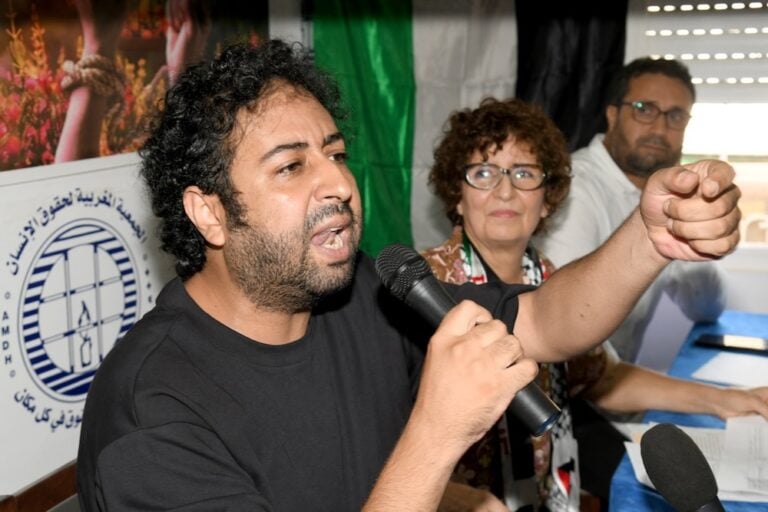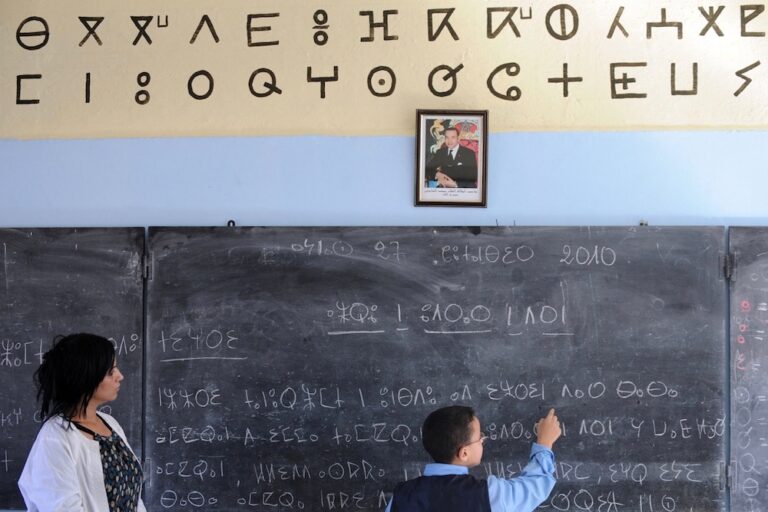(RSF/IFEX) – In a letter to Justice Minister Omar Azziman, RSF protested the forcible detention of Anas Mezzour, a journalist from the Arabic-language weekly “Al Ayyam”, by secret service agents. “How is it that agents from the Direction de la surveillance du territoire (DST) can freely detain a journalist in prison? We require an explanation,” […]
(RSF/IFEX) – In a letter to Justice Minister Omar Azziman, RSF protested the forcible detention of Anas Mezzour, a journalist from the Arabic-language weekly “Al Ayyam”, by secret service agents. “How is it that agents from the Direction de la surveillance du territoire (DST) can freely detain a journalist in prison? We require an explanation,” stated Robert Ménard, the organisation’s secretary-general, who also expressed concern about the DST’s growing influence in Morocco. “This detention is all the more irregular since members of the DST are not authorised to arrest Moroccan citizens,” he added.
According to information collected by RSF, on Monday 7 January 2002, Mezzour, a journalist from the Arabic-language weekly newspaper “Al Ayyam”, based in Casablanca, went to visit Islamists who are detained at the Kenitra central prison. Mezzour was accompanied by a lawyer and a member of a local humanitarian non-governmental organisation that deals with Islamist prisoners. He entered the prison at around 10:00 a.m. (local time). At approximately 5:00 p.m, as his group was getting ready to leave the prison building, the three men were stopped by a group of individuals who had just entered the building. They were not in uniform, and were therefore not prison guards. Mezzour was held facing a wall while the guards informed the prison governor. He was separated from his two companions and taken to the governor’s office. There, a man identified by the journalist as a secret services agent, accompanied by three other agents, seized his recording device and forcibly detained him. Mezzour was held in the governor’s office for three hours by the agents, who accused him of having illegally entered the building. He was only released after the prison governor decided to call on the public prosecutor in Kenitra. “I did it to protect you,” the prison governor subsequently confided, adding, “I did not want anything to happen to you under my jurisdiction.”


